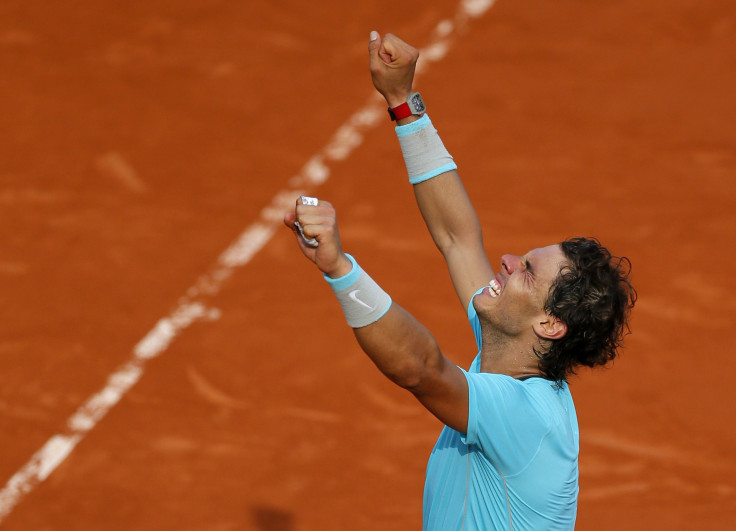GOAT? Nadal's Latest Win Raises The Question

As No. 1 Rafael Nadal fell to the soft clay and held back tears upon winning his ninth French Open title Sunday, the 27-year-old Spaniard entered rarified air with his 14th career slam title.
Beating No. 2 Novak Djokovic for the sixth straight time at Roland Garros, while also retaining his ranking as the world’s best player, Nadal will now complicate the debate about who is the GOAT: greatest of all time.
If the argument comes down to slams alone, Roger Federer walks away with the cherished moniker for now. But an argument can be made for others as well.
Federer holds the career record with 17 slams, and Nadal is now tied with American Pete Sampras with 14 after claiming his ninth French major in the last 10 years, highlighted by his 65-1 record in Paris.
Australian Rod Laver won 11 Grand Slam championships in the 1960s, and he won calendar Slams--all four titles in one year--twice, the only player ever to do so. No man has won a calendar Grand Slam since Laver, and his name comes up in any GOAT discussion.
Based on their head-to-head record, and Nadal’s overall success on every surface, he might have Federer’s number in nearly every other category.
The head-to-head matchup isn’t even close. In 33 matches, Nadal has beaten the Swiss 23 times including nine of the last 11. To be fair, Nadal’s recent success has come on the back end of the 32-year-old Federer’s career.
The bulk of Federer’s claim as the greatest of all time, and his main argument against Nadal, comes on the hard court and grass. He owns five U.S. Opens and four Australian, and is tied with Sampras with seven career victories at Wimbledon.
By comparison, Nadal won the U.S. and Wimbledon twice, and the Australian once.
Nevertheless, Federer’s lone slam victory at the French came in 2009, when Nadal was well out of contention. Nadal suffered his sole loss at the hands of relatively unknown Robin Soderling in the fourth round that year, but he has won every French title since.
Federer also has the edge on Sampras and Nadal in career singles titles, but he could lose his grip over time.
Federer’s professional career started in 1998, three years prior to Nadal’s, and he has racked up 78 singles titles and more than 954 career victories.
A deep run at Wimbledon, and perhaps a win over Federer, will put Nadal past Sampras and weaken Federer’s case.
Nadal has equaled Sampras with 64 singles titles, and assuming his questionable knee holds up, he should continue to enjoy his prime while retirement becomes more of a reality for Federer. His recent loss in the French open is part of a growing trend for Federer. He’s missed three of the last four quarterfinal rounds in slams.
A head-to-head comparison is impossible with Nadal and Sampras, but he does best the American at Roland Garros, and thus holds career grand-slam bragging rights.
Sampras and Nadal have never met on the court, as the former officially retired in 2003, but he also laid his claim to greatness at Wimbledon and the U.S., clinching five titles at Arthur Ashe.
Still, the furthest Sampras ever advanced in Paris was the semifinals in 1996, when he fell to eventual champion Yevgeny Kafelnikov.
At this juncture, if his health holds up and with Federer’s best days behind him, it may be only a matter of time before Nadal emerges as the greatest.
© Copyright IBTimes 2025. All rights reserved.





















